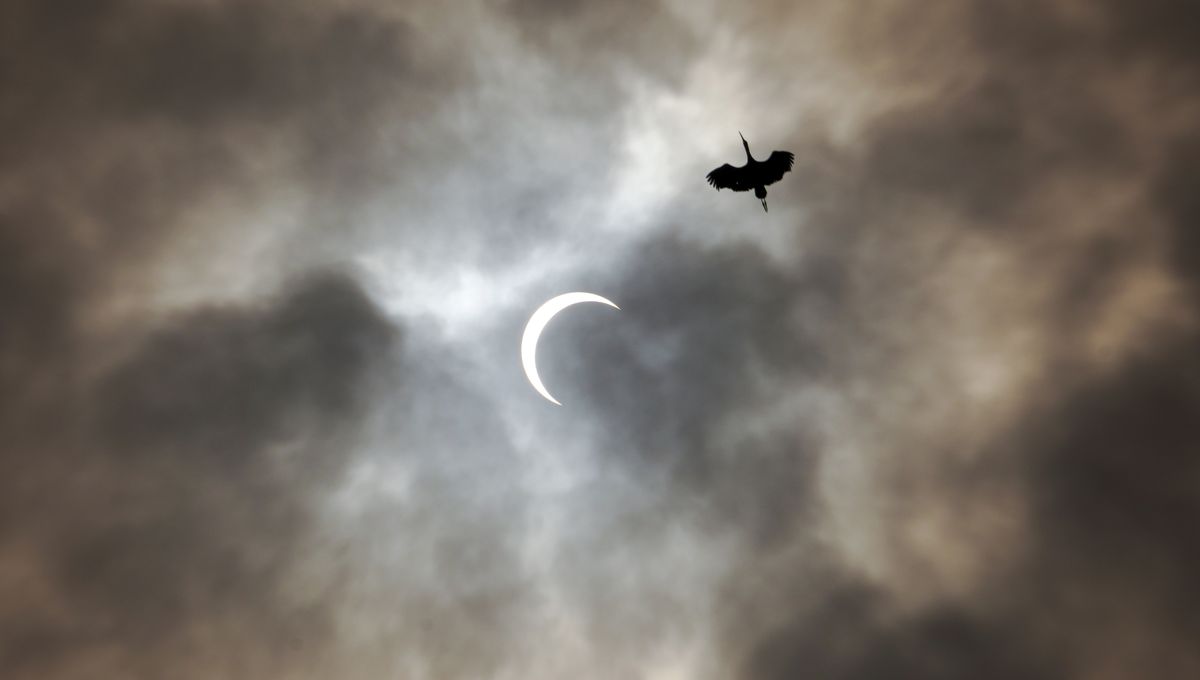
Though millions of people across North America will be looking up to the sky to witness April 8’s total solar eclipse, some scientists will have their sights elsewhere: on animals, especially those of the flying variety.
A team of researchers from the Cornell Lab of Ornithology will be keeping a particularly close eye on birds, bats, and insects, after these creatures exhibited some pretty strange behavior during North America’s last total solar eclipse.
“At sunset, there is typically a big pulse of movement showing insects, birds and bats either going to ground to settle for the night or just beginning nocturnal activity,” said Andrew Farnsworth, senior author of a study on flying animal behavior during the 2017 eclipse, in a statement.
“During the 2017 eclipse, we saw a decrease in flying insects, flying birds – but we didn’t see anything like the typical pattern of movement when it gets dark at night.”
The upcoming eclipse presents the team with a chance to build upon these findings. To do so, they’re planning to use weather radar stations across the path of totality in the US to measure airborne activity. By removing signals from weather events, they can measure the movements of flying animals – like birds – during the brief three to four minutes of totality.
Then, at sunset, they’ll measure activity again to compare any changes in behavior during the eclipse’s totality to their usual activity in response to changing light levels. There were only eight stations across the route of 2017’s eclipse, compared to 13 this time, so it’s hoped they’ll get a fuller picture of any differences.
“There will be more birds on the move, seriously motivated to get to their breeding grounds,” said Farnsworth. “In theory, if there’s any significant change in their behavior because of unexpected darkness and the accompanying drop in temperatures, we’re much more likely to see it during this event.”
Though the eclipse might see animals engaging in some bizarre behavioral phenomena – tortoises suddenly shagging, for example – it’s actually hoped that it’ll deepen our understanding of how flying animals respond to light normally.
“[I]t’s pretty hard to manipulate light at large scales. Here we have this unique natural phenomenon setting up a huge ‘experiment’ for us,” said Cecilia Nilsson, a behavioral ecologist who led the 2017 study.
“By seeing how animals react to the total eclipse we can get clues to how they perceive and use light under normal circumstances. Birds and insects might use cues from light differently, for example.”
If it seems like animal scientists will be having all of the fun during the eclipse, don’t worry – you can join in too. Citizen science projects like the Solar Eclipse Safari are asking members of the public in the path of the eclipse to gather behavior data on any animal they like, from those in nature to our pets.
And if you’re planning on looking up at the sky at the same time, please remember to do so safely!
Source Link: Upcoming Solar Eclipse Could See Dramatic Shifts In Bird Behavior